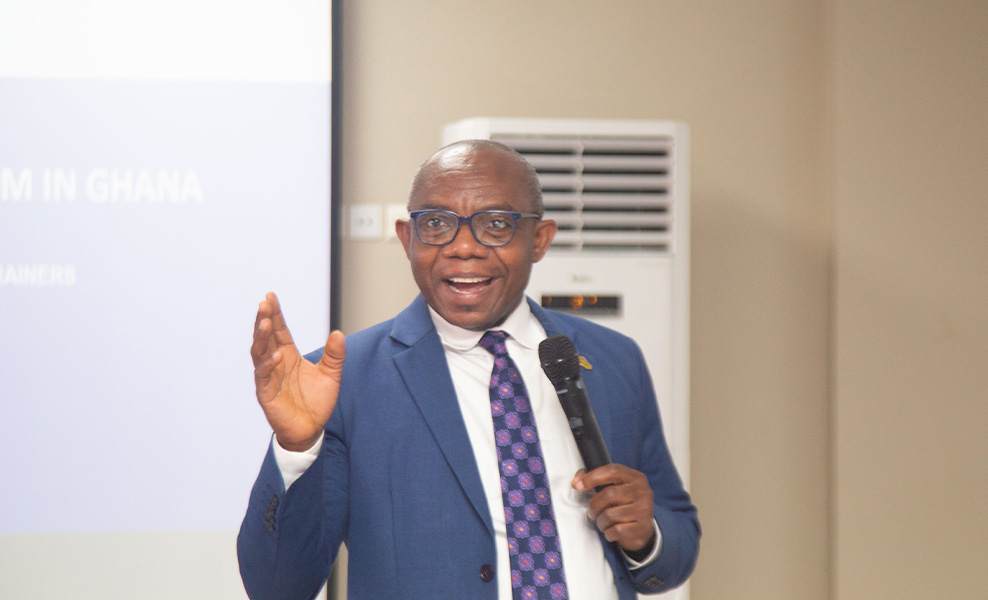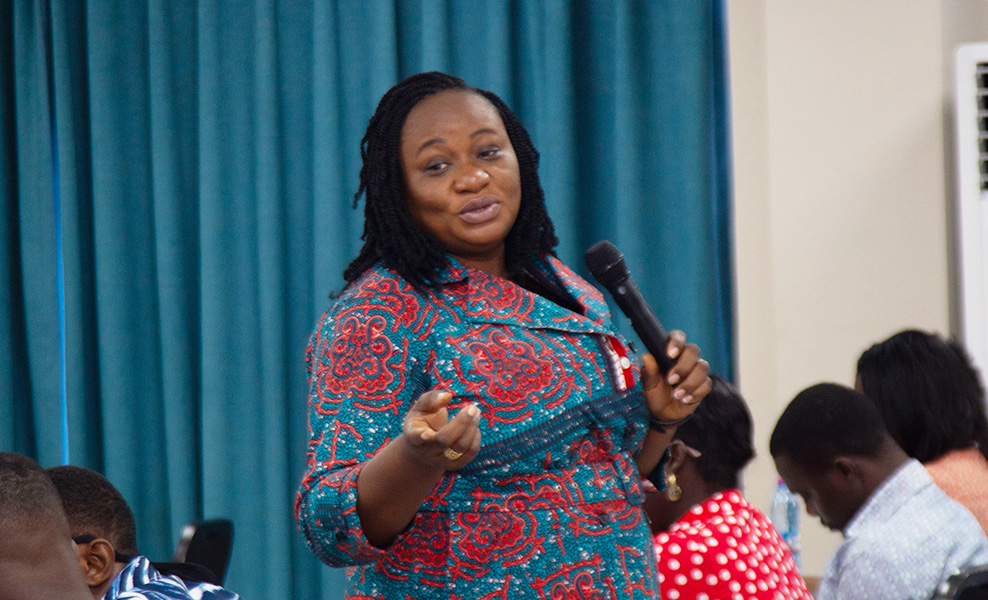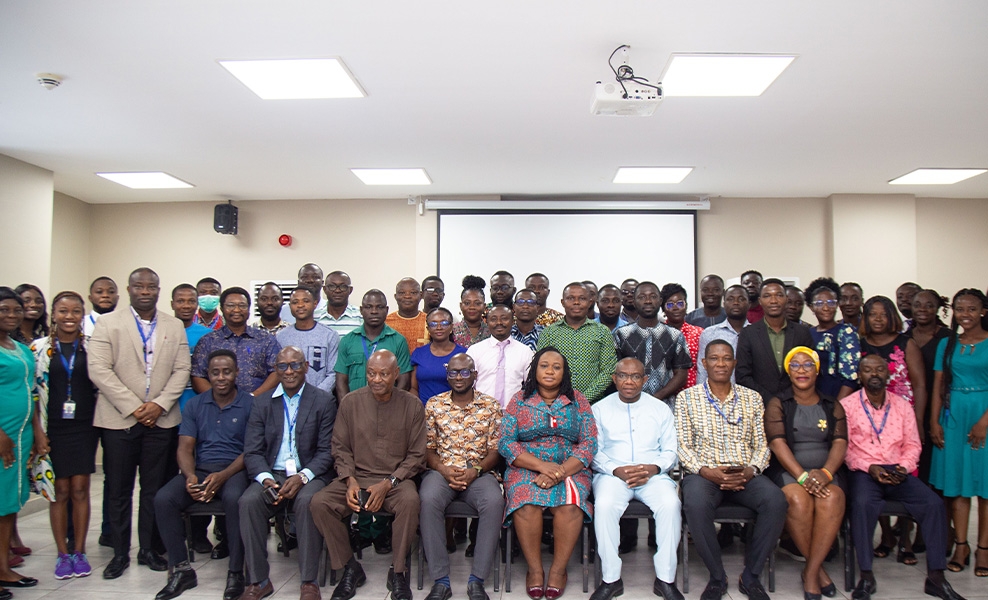Kwame Nkrumah University of Science and Technology (KNUST), in collaboration with the Save Lives and Livelihood Project and the Food and Drugs Authority (FDA), has organized a two-day workshop for trainers who are Institutional Contact Persons to equip them with an understanding of the key Pharmacovigilance principles and its systems in Ghana.
The training came off on the 21st and 22nd May 2025 at the KNUST Impact Building. Professor Christian Agyare, the Lead Principal Investigator of the project, highlighted in his remarks its objectives and the essence of the workshop. He cited that the workshop was organized to train a core team of regional Pharmacovigilance experts to support the training of Pharmacovigilance across the regions of Ghana.
The workshop was segmented into five (5) modules covering an array of topics, hands-on sessions and a couple of tests.

At the workshop, it was noted that Pharmacovigilance and Vaccinovigilance are essential components of public health, ensuring that medicines and vaccines are used safely and effectively. As the use of medical products expands, robust systems to detect, assess and prevent adverse effects become increasingly vital to protect the population and sustain confidence in health interventions.
The participants were tasked to demonstrate appreciation of the need for Pharmacovigilance, define terms associated with post approval safety monitoring and express knowledge about global initiatives in Pharmacovigilance. Ultimately, the workshop also facilitated the planning for the implementation of the regional Pharmacovigilance trainings.

The Saving Lives and Livelihood Programme is an African Centres for Disease Control and Prevention Project, funded by the Mastercard Foundation. The programme aims to strengthen or develop national capacity and capability for Pharmacovigilance at the country level as well as contribute to building a close network of data on Pharmacovigilance, enabling countries to increase their ranking on the World Health Organization benchmark.
KNUST on this programme is a local implementing partner, overseeing resource management, technical input in programme implementation, work plan implementation and reporting. Whereas AFREhealth, an interprofessional health grouping based in KNUST, is responsible for identifying and retaining experts in Pharmacovigilance in respective African Union Member states.

